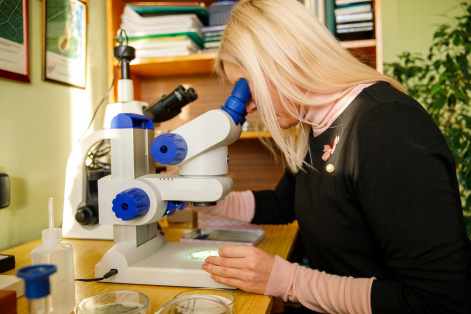Scientists registered "uninvited guests" in the ecosystems of Russia and in the world
17 September 2021 г.

From 1960 to 2020, damage from alien species in Europe amounted to about $ 140.2 billion. Economic losses associated with the invasions of alien species in China and India totaled $ 432.6 billion between 1965 and 2017. These economic estimates take into account only 5% of the species of invasive organisms registered in recent decades in these countries.
Scientists from more than 50 countries worked on the implementation of a large-scale project. They collected and analyzed long-term data on economic losses associated with the spread and harmful activity of invading species in their region. Natalia Kirichenko was engaged in the search and synthesis of data on monetary costs as a result of biological invasions (mainly insects) in Russia and assessed the impact of invaders on the economy of our country. One of the articles of the special issue is devoted to the economic losses from "uninvited guests" in the terrestrial ecosystems of Russia.
Natalia notes that there are still huge blanks in the study of the distribution and harmful activities of alien species. Economic losses from alien species are not known for all of them and only in certain countries. Moreover, economic estimates are most often expressed in direct losses caused by alien species to regions (for example, crop loss, harm to human health); however, there is very little data on indirect damage (for example, the cost of organizing monitoring and prevention of the species spread).
“European countries have strong trade relations with the whole world, they receive millions of tourists every year. Unfortunately, this openness has a negative side: certain alien species which have penetrated into European countries (including the cases of the transportation of plants and goods) can become a real disaster for local ecosystems. For example, the Asian species of the butterfly - the boxwood moth - penetrated into European countries a little over a decade ago and provoked the death of evergreen shrubs used to create hedges in cities (boxwood plantations). The boxwood moth penetration into the south of the European part of Russia turned into a natural disaster: the butterfly found itself in relict areas of endemic boxwood (Colchis), putting this plant species under the threat of extinction, "said Natalya Kirichenko.
The main problem in understanding the real scale of economic losses from species-invaders in Russia, according to the scientist, was the lack of systematic assessments of direct and indirect damage as a result of their invasion. Assessment of the damage to the Russian economy made by forest and agricultural pests, as well as plant pathogens, is made most often on the basis of generalizing forecast data for the European and Asian parts of the country. According to researchers, in 2007–2019 alien species inflicted damage to Russia which amounts to at least 51.52 billion US dollars, but this is underestimated, as the author notes.
According to Natalia, it will be impossible to know the exact figures for the real damage to forests and agricultural land, as long as most estimates are based on forecasts. Data verification is imperative. In their work, scientists call for improved reporting on economic losses at the national and international levels and for attracting due attention to this problem.
Source: Ministry of Education and Science of Russia
Share:
